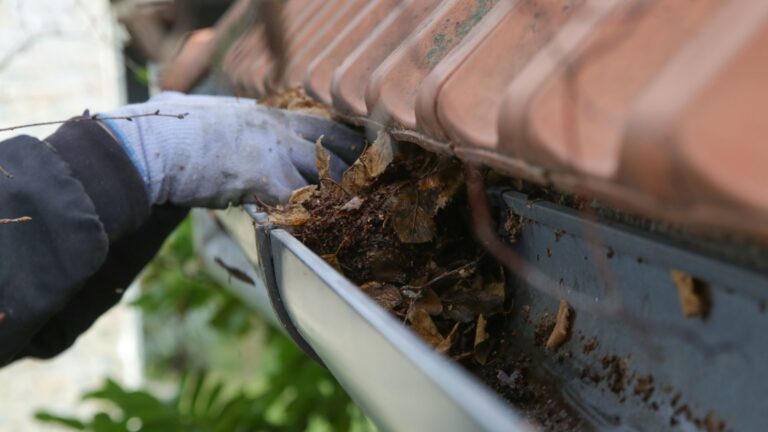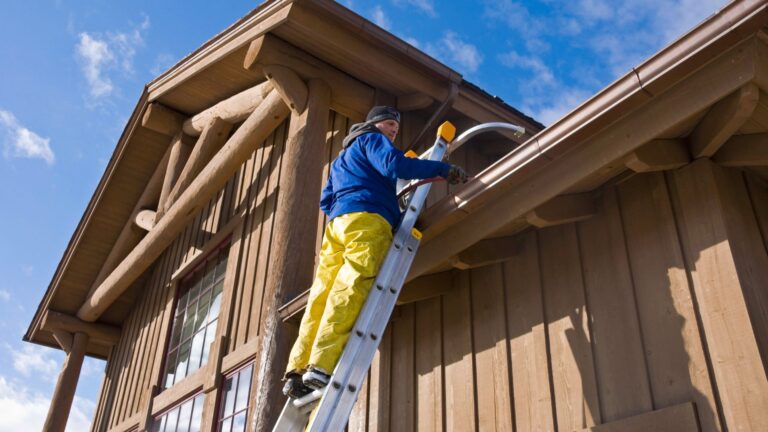Living in New Jersey means dealing with unpredictable weather, especially during the spring and hurricane seasons. Heavy rains, strong winds, and even sudden snowstorms can place significant stress on your home’s gutter system. When gutters fail, they don’t just spill water—they contribute to roof damage, basement flooding, soil erosion, and costly foundation issues. That’s why storm-proofing your gutters in NJ is not just a maintenance task—it’s an investment in your home’s structural integrity.
As climate patterns become more erratic, NJ homeowners must prioritize durable, high-capacity gutters capable of handling intense downpours. Without proper storm-proofing, gutters can clog, crack, or detach entirely, leaving your property vulnerable. This guide offers smart, actionable tips to help New Jersey residents protect their gutter systems and, by extension, their entire home from storm damage.
Understanding New Jersey’s Climate and Gutter Challenges
New Jersey experiences a wide range of weather conditions throughout the year, with powerful thunderstorms in summer, nor’easters in winter, and hurricanes in late summer and fall. These intense weather events result in rapid water accumulation on roofs, putting gutters to the test. Most standard gutter systems struggle to keep up with the volume and pressure of water during heavy rainstorms in NJ. Add in high winds and debris, and it’s a recipe for gutter overload and failure.
Additionally, clogged or sagging gutters are a common issue after prolonged rainy seasons, especially in neighborhoods surrounded by mature trees. Leaves, twigs, and roofing granules can accumulate rapidly, blocking proper water flow. If not maintained and reinforced, your gutter system may become a source of leaks and structural damage. Understanding these regional challenges is key to storm-proofing your gutters and maintaining peace of mind during severe weather in New Jersey.
Choosing the Right Gutter System for Storm Protection
✅ Choose seamless gutters for fewer leak points and stronger resistance against storm pressure.
✅ Opt for aluminum or steel gutters for maximum durability against heavy rain and snow.
✅ Install oversized gutters (6-inch or commercial-grade) for better water flow during NJ’s heaviest storms.
✅ Consider copper gutters for both durability and aesthetic appeal, especially on older NJ homes.
✅ Use UV- and rust-resistant coatings to ensure longevity through all four seasons.
✅ Match your gutter style to your roofline to reduce splashing and water misdirection.
✅ Ensure your gutters meet local building codes for stormwater management.
✅ Use internal hangers instead of spikes to resist high wind uplift.
✅ Evaluate box gutters for historic or flat-roof homes in New Jersey cities.
✅ Ask local gutter installers about the most storm-resistant systems based on regional weather data.
Install Gutter Guards for Maximum Protection
✅ Micro-mesh gutter guards are excellent for preventing debris buildup while allowing water to flow freely.
✅ Foam gutter inserts can be a quick DIY solution but may not hold up long-term in severe NJ storms.
✅ Reverse curve guards guide rain into the gutter while shedding leaves and debris.
✅ Brush gutter guards are easy to install but require regular cleaning.
✅ Stainless steel guards offer long-term strength against corrosion and storm impact.
✅ Installing guards reduces gutter cleaning frequency, which is ideal during back-to-back storms.
✅ Guards help prevent ice dams during NJ winters by promoting even water drainage.
✅ They protect your home’s foundation by preventing overflow and water pooling.
✅ They extend gutter lifespan by reducing strain and clogs.
✅ Look for guards with a manufacturer warranty, especially in storm-prone regions.
Proper Gutter Slope and Downspout Positioning
Importance of Correct Gutter Pitch
A properly sloped gutter system ensures efficient water flow, even during New Jersey’s heaviest downpours. If your gutters are too flat, water pools and causes sagging or overflow; if they’re pitched too steeply, water can overshoot the downspouts. The ideal slope is about 1/4 inch for every 10 feet of gutter, which encourages steady drainage without compromising structural integrity. For storm-proof gutters in NJ, correct pitch is essential to minimize clogs, prevent rusting, and reduce ice dam formation in winter. Homeowners should inspect their gutters regularly to ensure pitch hasn’t shifted due to weight or loose brackets. A poorly pitched gutter can cause more damage than a clogged one in extreme weather.
Downspout Placement and Extensions
Properly positioned downspouts are just as important as the gutter slope itself. In storm-prone areas like New Jersey, downspouts should be installed at each corner of your home, and additional ones may be necessary for larger roofs. Extensions help direct water at least 4 to 6 feet away from the foundation to avoid flooding and erosion. In some NJ homes, underground drainage systems are used to carry water further away. Improperly placed or damaged downspouts often lead to basement leaks, mold growth, and soil displacement. Investing in downspout realignment or flexible extensions before storm season can save thousands in repair costs.
Regular Gutter Maintenance Before and After Storms
Storm-proofing your gutters isn’t complete without regular inspection and cleaning, especially before and after significant weather events. During autumn and spring in NJ, gutters quickly fill with leaves, pine needles, and shingle grit, blocking water flow. Clean your gutters at least twice a year—or more often if your home is surrounded by trees. Pre-storm inspections can reveal early signs of sagging, separation, or corrosion that need immediate attention. This proactive approach helps protect your home from preventable water damage.
After a storm, inspect gutters for visible dents, dislodged sections, and blockages. Heavy rains and winds can knock debris into your gutter system or displace guards and fasteners. Ignoring these post-storm issues can lead to long-term drainage problems. For homeowners who prefer convenience and safety, hiring a local NJ gutter maintenance service ensures proper care and compliance with local storm preparedness practices.
Reinforcing Gutter Hangers and Brackets
High winds and heavy rain in NJ can cause gutters to detach if they’re not properly supported. Reinforcing your gutter system with heavy-duty hangers and rust-resistant brackets helps it withstand powerful storms. Replace outdated spike-and-ferrule systems with internal hangers that anchor securely to the fascia. These modern hangers distribute weight more evenly and prevent gutter sag, especially when water backs up due to debris.
Check all fasteners regularly and tighten any that appear loose. During nor’easters and hurricanes, the last thing you want is a swinging or collapsing gutter damaging your siding or windows. Upgrading your gutter support system is a relatively small investment compared to the cost of storm-related repairs. Proper reinforcement ensures your gutters remain securely attached during every season in New Jersey.
Addressing Roof and Fascia Damage
| Issue | Cause | Storm-Proofing Solution |
|---|---|---|
| Rotting fascia boards | Overflowing gutters, trapped moisture | Replace with treated wood or PVC, install drip edge |
| Cracked drip edge flashing | Wind uplift, improper installation | Reinstall securely under shingles |
| Damaged shingles near edge | Water overflow, ice dams | Repair shingles and install gutter apron |
| Mold growth on roof edge | Persistent standing water in gutters | Ensure gutter cleaning and proper drainage |
| Sagging roofline | Prolonged water exposure, improper flashing | Reinforce fascia and inspect attic ventilation |
Hiring Local Gutter Experts in New Jersey
When it comes to storm-proofing, hiring a local NJ gutter contractor ensures your home receives weather-specific solutions. Local professionals understand the regional climate and are familiar with the types of storms that most frequently hit the state. They can recommend the best gutter guards, materials, and installation techniques based on years of experience with New Jersey homes. Additionally, local contractors are more accessible for emergency services or post-storm repairs, offering peace of mind during the rainy season.
Look for licensed, insured gutter companies with positive reviews and a solid portfolio of storm-ready projects. Ask about warranties, annual maintenance packages, and 24/7 emergency availability. A reliable gutter expert will not only upgrade your system for optimal storm protection but will also help you maintain it season after season.
Conclusion:
Storm-proofing your gutters is a critical step in protecting your New Jersey home from water damage, foundation issues, and expensive repairs. By choosing the right system, reinforcing support, installing guards, and performing regular maintenance, you can confidently weather any storm. Take the time now to assess and upgrade your gutter system—your home will thank you when the next storm hits.






